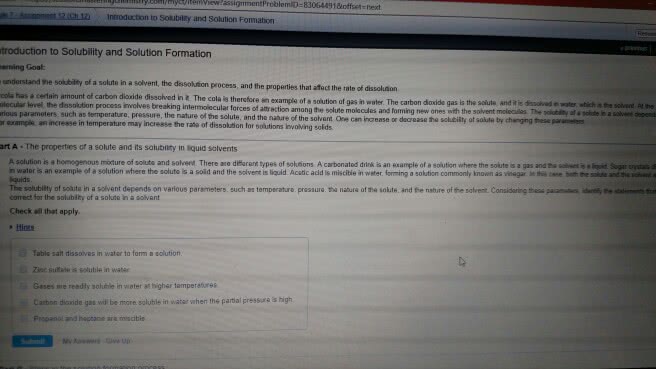01:160:161 Chapter Notes - Chapter 8: Strong Electrolyte, Solubility, Aqueous Solution
Document Summary
Solution: a homogeneous mixture of two substances, such as salt and water. Aqueous solution: is one in which water acts as the solvent. Dilute solution: one that contains a small amount of solute relative to the solvent. Concentrated solution: one that contains a large amount of solute relative to the solvent. Molarity (m): a common way to express solution concentration; the amount of solute (in moles) divided by the volume of solution (in liters). Ionic compounds dissociate into their component ions when they dissolve in water. The dissolved ions act as charged carriers, allowing the solution to conduct electricity. Electrolytes: substances that dissolve in water to form solutions that conduct energy. Strong electrolytes: the resulting solution of when a substance that completely dissociates into ions when they dissolve in water. Nonelectrolyte: compounds that do not dissociate into ions when dissolved in water, resulting in a nonelectrolyte solution that does not conduct electricity.



